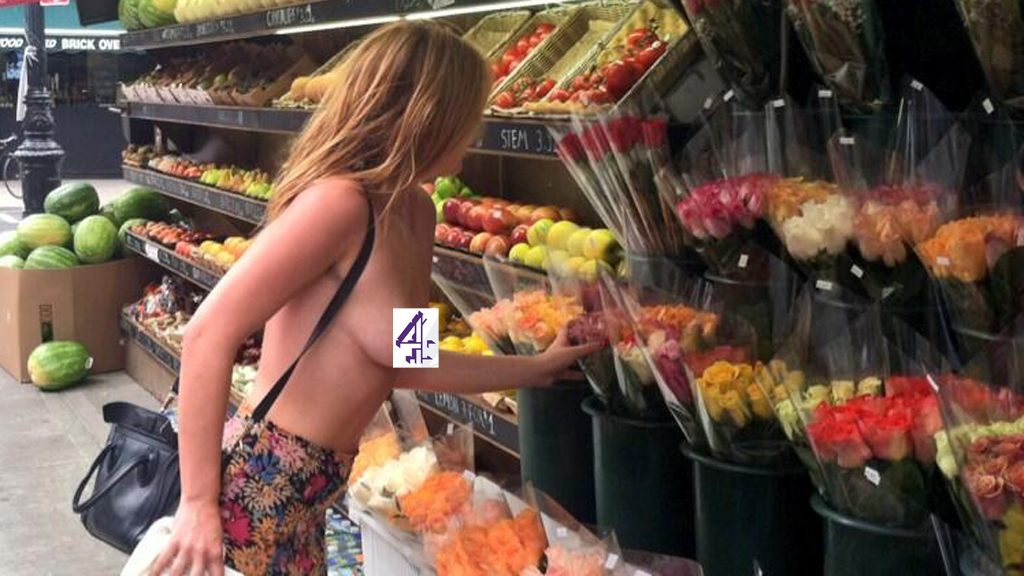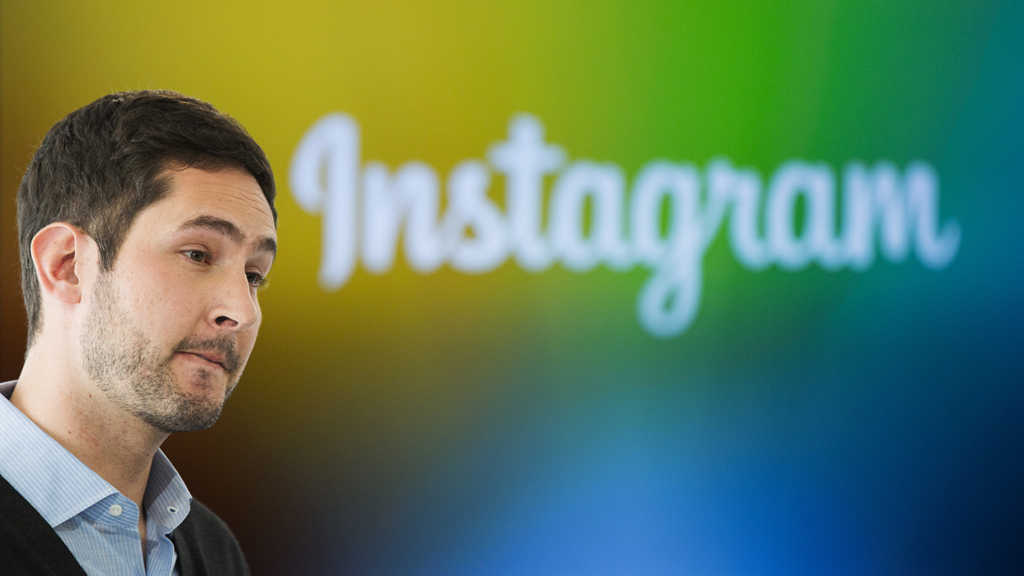Instagram defends nipple policy as celebs step up pressure
The photo and video sharing website says the ban on nudity will stay to protect younger users, as celebrities say women should be allowed to post topless pictures.

Instagram, which Facebook bought for $1bn in 2012, has come under pressure from some high-profile users over its policy of censoring bare female breasts.
The company bans users from posting “violent, nude, partially nude, discriminatory, unlawful, infringing, hateful, pornographic or sexually suggestive photos or other content”.
But it has faced accusations of heavy-handedness and hypocrisy over the way the policy is interpreted.
Men regularly appear topless, and celebrity male users have been allowed to post pictures of “partially nude” women striking erotic poses with impunity.
But photos containing women’s nipples, even in a non-sexual context, have seen the company close down accounts.
Topless in New York
This week Scout Willis, daughter of Hollywood star Bruce Willis, said she would continue campaigning for women’s right to bare their breasts after Instagram closed several accounts she used to publish “artistic” images of naked women.
She then posted pictures on Twitter – which has a more relaxed policy about censoring images – of herself walking around New York topless (above – picture: Scout Willis/Twitter).
I walked around New York topless and documented it on Twitter, pointing out that what is legal by New York state law is not allowed on Instagram. Scout Willis
“Women are regularly kicked off Instagram for posting photos with any portion of the areola exposed, while photos sans nipple – degrading as they might be – remain unchallenged,” she wrote.
“So I walked around New York topless and documented it on Twitter, pointing out that what is legal by New York state law is not allowed on Instagram.
“Why can’t a mother proudly breastfeed her child in public without feeling sexualised?
“What I am arguing for is a woman’s right to choose how she represents her body —and to make that choice based on personal desire and not a fear of how people will react to her or how society will judge her. No woman should be made to feel ashamed of her body.”

Singer Rihanna recently deleted her Instagram account in protest at the nudity policy. On Monday night turned up at an awards ceremony in a see-through dress.
The hashtag #FreeTheNipple began trending on Twitter, with some support from feminists, breastfeeding mothers and, predictably, men whose motives were not entirely altruistic.
Breast feeding is part of our existence. No shame. Beautiful #FreeTheNipple #equality @NatGeo pic.twitter.com/m8ER7JBaNs
— FREE THE NIPPLE (@freethenipple) May 19, 2014
There’s a new movement called #FreeTheNipple for women who demand to be able to walk around topless. Guys, I say we milk this thing.
— FRESH PRINCE OF BK (@SirAshtonMartin) May 28, 2014
Instagram’s co-founder Kevin Systrom has now defended his company’s policy, saying the site needed to make sure images were appropriate for younger users.
He told the BBC: “Our goal is really to make sure that Instagram, whether you’re a celebrity or not, is a safe place and that the content that gets posted is something that’s appropriate for teens and also for adults.
“We need to make certain rules to make sure that everyone can use it.”
‘Puritanical living’
Scout Willis has blamed the nipple ban on the fact that “in America, we are still living puritanically”, but other US-based sharing sites like Tumblr and Flickr have less restrictive policies than Instagram.
Both allow users to post explicit adult content but use filters to make it easy for others to avoid nude and pornographic images.
Instagram’s owner Facebook says its policy is to “impose limitations on the display of nudity”, but it adds: “We aspire to respect people’s right to share content of personal importance, whether those are photos of a sculpture like Michelangelo’s David or family photos of a child breastfeeding.”
YouTube says it is “not for pornography or sexually explicit content”, but it is unclear how that translates into a policy on female nudity.
The site was reported to have banned the controversial video for Robin Thicke’s Blurred Lines, which features bare-breasted models, earlier this year. But the uncensored video now features prominently on the site and has been viewed more than 1.3 million times.

Mr Systrom makes it clear in today’s interview that the company invests a significant amount of manpower in policing the images that appear on Instagram.
He said: “We have all sorts of teams in place both scanning content and listening to community reports, making sure that the right type of content is being posted.”
Instagram’s decision to employ a tight nudity policy may be driven by commercial considerations, with social media becoming increasing popular in countries where nudity is less tolerated.
Instagram’s community guidelines warn users: “People from around the world with different backgrounds come together to share moments on Instagram, which is great, but it also means that not everyone will agree with what you think or believe.”
Earlier this year Indonesia, the world’s most populous Muslim-majority country, banned Vimeo after complaints about nude material.
Vimeo has asked the government of Indonesia to reconsider its decision to block the site, denying it access to nearly 250 million people, saying the site does not allow pornography, only “artistic and non-sexual nudity”.